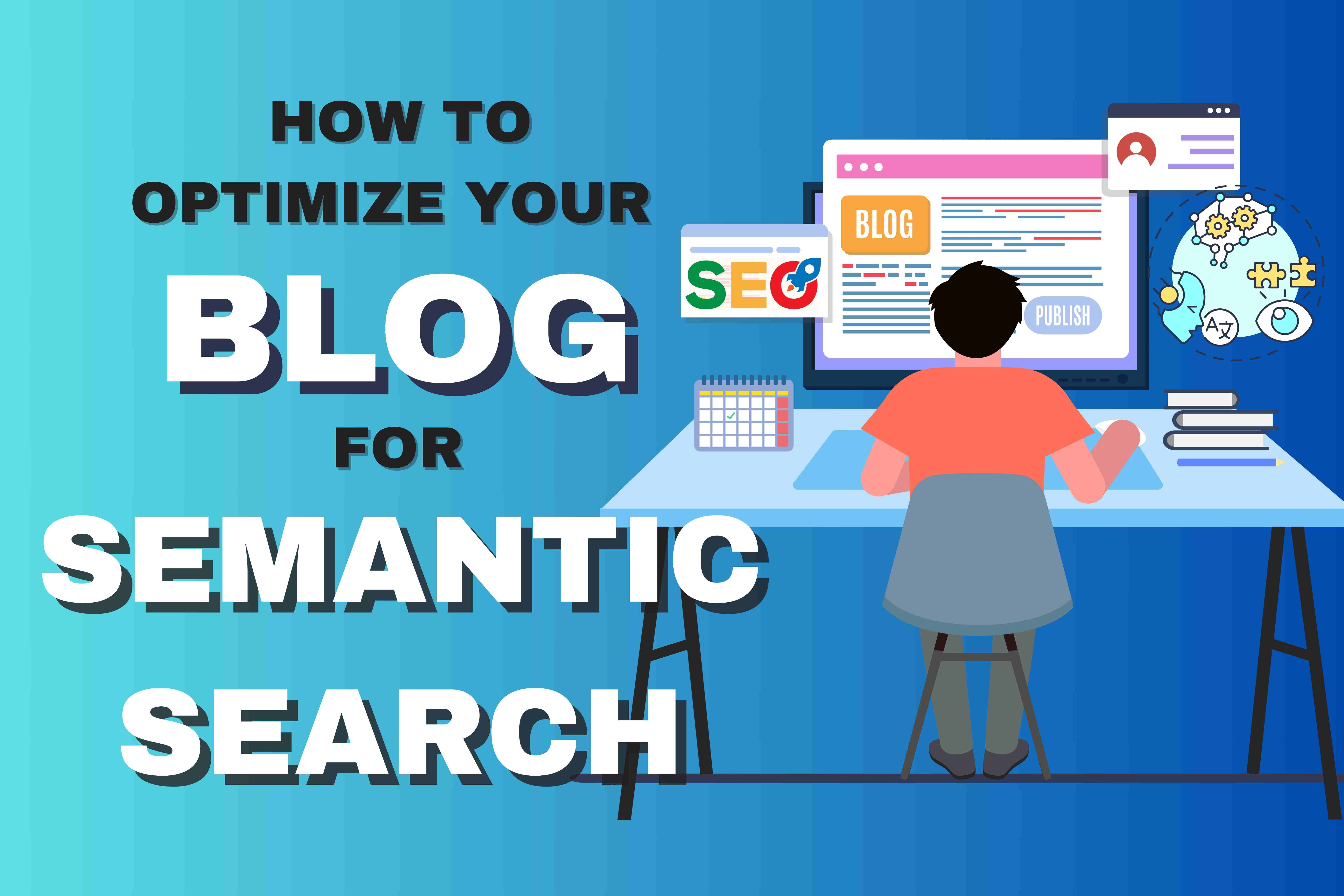In the ever-evolving landscape of SEO, semantic search has emerged as a critical factor in how search engines understand and rank content. Semantic search focuses on the intent behind a user’s query rather than just matching keywords. For business owners looking to enhance their online store’s visibility and drive more organic traffic, optimizing your blog for semantic search is crucial.
This article will guide you through actionable tips and the latest SEO trends relevant to semantic search, blog SEO, and search optimization. By implementing these strategies, you can improve your blog’s relevance and increase its chances of ranking higher in search engine results.
Table of Contents
- Understanding Semantic Search
- Key Strategies for Optimizing Your Blog for Semantic Search
- Latest Trends in Semantic Search Optimization
- Conclusion
- About Don Hesh SEO
Understanding Semantic Search
Semantic search represents a shift from traditional keyword-based search algorithms to ones that better understand the meaning and context behind user queries. It aims to provide more relevant search results by interpreting the intent behind a search rather than focusing solely on exact keyword matches.
Key elements of semantic search include:
- Contextual Understanding: Understanding the context and meaning behind user queries.
- Entity Recognition: Identifying and categorizing entities (people, places, things) mentioned in content.
- Relationship Mapping: Recognizing relationships between different entities and concepts.
Key Strategies for Optimizing Your Blog for Semantic Search
1. Focus on User Intent
To optimize for semantic search, it’s essential to understand and address the intent behind your readers’ queries. Users are often searching for specific answers or solutions to their problems, so your content should be crafted to meet these needs.
Actionable tips:
- Use tools like Google Search Console and keyword research tools to identify common queries related to your topic.
- Create content that answers specific questions and provides detailed solutions or explanations.
- Use a variety of content formats, such as how-to guides, FAQs, and case studies, to address different aspects of user intent.
2. Use Structured Data Markup
Structured data helps search engines understand the context and details of your content, making it easier for them to provide relevant search results. Implementing structured data markup can enhance how your content appears in search results.
Actionable tips:
- Use schema markup to define specific elements of your content, such as articles, products, or events.
- Implement rich snippets to provide additional information, such as ratings, reviews, and pricing.
- Test your structured data using tools like Google’s Structured Data Testing Tool to ensure it is correctly implemented.
3. Create Comprehensive and Relevant Content
Semantic search values content that provides comprehensive information on a topic. Creating in-depth and relevant content improves your chances of ranking well for a variety of related queries.
Actionable tips:
- Conduct thorough research on your topic and cover it from multiple angles.
- Use subheadings, bullet points, and other formatting techniques to make your content easy to navigate.
- Regularly update and expand your content to ensure it remains relevant and useful.
4. Optimize for Natural Language
As search engines become more sophisticated, they increasingly understand and process natural language. Writing content that reflects natural language usage can help improve its relevance in semantic search.
Actionable tips:
- Use conversational language and long-tail keywords that mimic how people naturally speak and ask questions.
- Incorporate questions and answers into your content, such as through an FAQ section.
- Write in a clear, engaging style that resonates with your audience.
5. Incorporate Related Terms and Synonyms
Semantic search algorithms recognize synonyms and related terms, making it important to use a diverse vocabulary in your content. This helps search engines understand the broader context of your topic.
Actionable tips:
- Use tools like LSIGraph or SEMrush to find related terms and synonyms.
- Integrate these terms naturally into your content to provide additional context and relevance.
- Avoid keyword stuffing; instead, focus on creating content that naturally incorporates related terms.
6. Improve Content Readability and User Experience
A positive user experience contributes to better SEO performance. Ensuring your content is readable and user-friendly helps retain visitors and encourages them to engage with your blog.
Actionable tips:
- Use short paragraphs, clear headings, and bullet points to enhance readability.
- Include visuals like images and videos to support your content and keep readers engaged.
- Optimize your website’s design and navigation to improve the overall user experience.
Latest Trends in Semantic Search Optimization
1. The Rise of AI and Machine Learning
Artificial Intelligence (AI) and machine learning technologies are increasingly used to enhance semantic search capabilities. These technologies help search engines better understand context, user intent, and the nuances of natural language.
Actionable tips:
- Stay informed about advancements in AI and machine learning that may impact SEO.
- Consider how these technologies might influence your content strategy and optimization efforts.
2. Enhanced Focus on Contextual Understanding
Search engines are becoming better at interpreting the context surrounding user queries. This means that providing content that addresses a broad range of related topics and provides valuable insights is becoming more important.
Actionable tips:
- Create content clusters around core topics to provide comprehensive coverage.
- Focus on delivering contextually relevant information that enhances the user experience.
Conclusion
Optimizing your blog for semantic search is essential for improving its visibility and driving organic traffic. By focusing on user intent, using structured data markup, creating comprehensive content, and incorporating related terms, you can enhance your blog’s relevance in search results. Staying up-to-date with the latest trends, such as advancements in AI and machine learning, will also help you maintain a competitive edge.
About Don Hesh SEO
Don Hesh SEO is a leading SEO consultant and Google Ads consultant dedicated to helping businesses enhance their online presence and drive organic traffic. Our expertise in AI-driven SEO strategies ensures that your business stays ahead of the competition. Partner with SEO Sydney to leverage the latest AI technologies and achieve your SEO goals efficiently and effectively.



